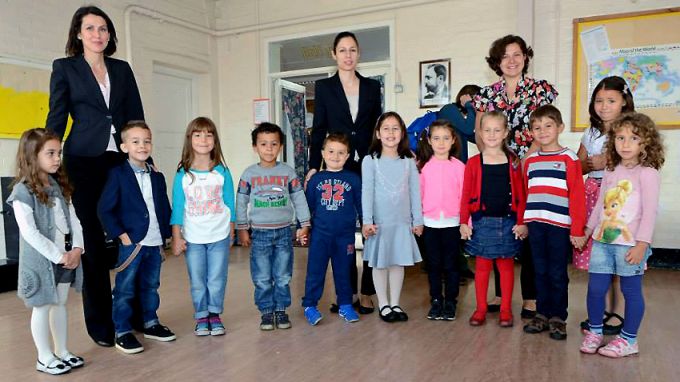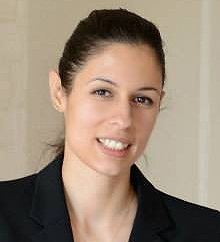
A growing number of little Bulgarians leave this country with their families - this is the sad statistics of the educational ministry. The data is really shocking: 9,784 children, aged 6 – 18 have left in 2016 only. This is the population of a small town, inhabited by kids and young people only. How do these children preserve their native Bulgarian language? The issue concerns many of our compatriots abroad and different initiatives across various cities and states take place for the unveiling of Bulgarian schools.
Today we present to you Mrs. Nina Borisova, whose support has contributed to the establishment of the St. Ivan Rilski /St. John of Rila/ school in Cambridge. It now has a history of two years and continues to receive new pupils.
The motivation of a kid to come and stay is the major problem, faced by Nina and her team. Almost each new child is not sure why he/she is coming. The parents have said that is how it should be, but the child itself is not too convinced and we know that whatever is obligatory quickly becomes boring.
 “Even if they were not born in England the children quickly adapt to the world outside,” Nina Borisova says. “This happens in no time. They recognize the language and culture of the other country as their own too quickly. They are not sure why they should learn Bulgarian. No matter if both parents are Bulgarian, whenever asked, the kids won’t answer with: “I am a Bulgarian”. They won’t recognize the Bulgarian as their mother tongue, since it is not related with the place they live.”
“Even if they were not born in England the children quickly adapt to the world outside,” Nina Borisova says. “This happens in no time. They recognize the language and culture of the other country as their own too quickly. They are not sure why they should learn Bulgarian. No matter if both parents are Bulgarian, whenever asked, the kids won’t answer with: “I am a Bulgarian”. They won’t recognize the Bulgarian as their mother tongue, since it is not related with the place they live.”
One of the major problems of the Bulgarian school abroad is that adapted curricula are necessary, not just shortened ones. According to Nina Borisova this is due to the fact that the basic skills of the children remain unknown along with the level of their Bulgarian. Thus a teacher faces a tough task:
“He or she has to adapt to the needs of each child, in order for the classes to be equally accessible, since sometimes children in the same class know Bulgarian language at a different level. Sometimes they just find it easier to answer in English, though they comprehend. Others are good at speaking, but struggle with writing and reading.”
Many curriculum elements have to be adapted by the teachers and that is why they need more freedom. Lots of kids don’t go to the school nearby, because it doesn’t respond to their needs. That is why the teachers try to synchronize their teaching method with the practice of the English schools.

“Still, we have to take into consideration the fact that the Bulgarian method is more academic. We have lots of reading and writing, they spend more time in the desk. At the same time they teach everything as a game in England, it’s much more interactive. If we leave them behind the desk in the course of 3 - 4 hours we will have lost them as our audience. They need to be attracted to the studying of Bulgarian, to our traditions and culture.”
Nina Borisova is really lucky in Cambridge, because her team is very motivated. The folklore dancing subject is introduced this year as a compulsory class. We wish them good luck and also to the hundreds of other Bulgarian schools abroad.
English version: Zhivko Stanchev
The Aviation Training Center at Sofia Airport has received accreditation from the Airports Council International (ACI) and joins the elite group of 21 training hubs, including those at leading European airports such as Munich,..
The Museum of the Bulgarian National Revival in Varna presents a collection of 15 authentic folk costumes from the collection of the Historical Museum in the town of Popovo. The valuable costumes are from the regions of Elhovo,..
Deanna Haag was born in Cleveland, Ohio, USA. She grew up dreaming of adventure and new horizons. After graduating from Wittenberg College in Ohio with a degree in Fine Arts, her life took an unexpected turn. The young American stood out for her..
The festive service for the consecration of the new Bulgarian Orthodox church in London is led by His Holiness Daniil , Patriarch of Bulgaria, who also..
In the era of increased digitalization and the penetration of artificial intelligence into all spheres of our lives, the professions of people with high..
The Martenitsa Festival was held in Brussels f or the third consecutive year . Cultural organizations from Bulgaria, Romania and Moldova presented their..

+359 2 9336 661
